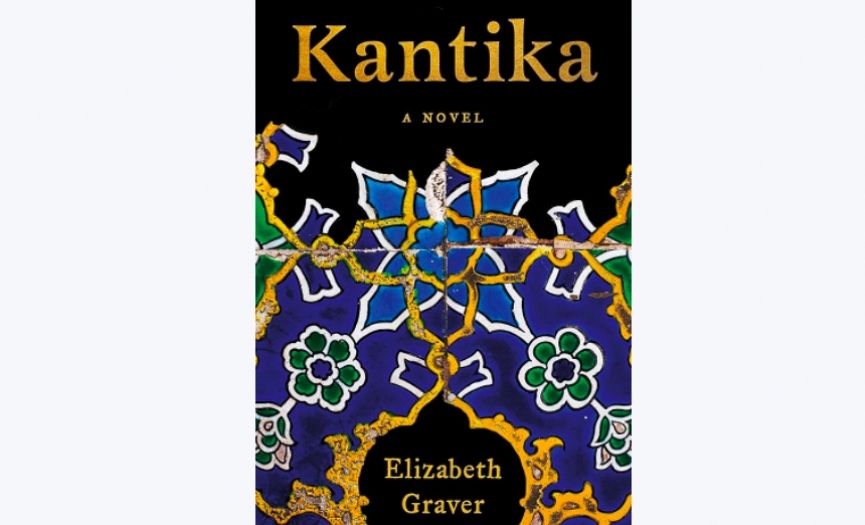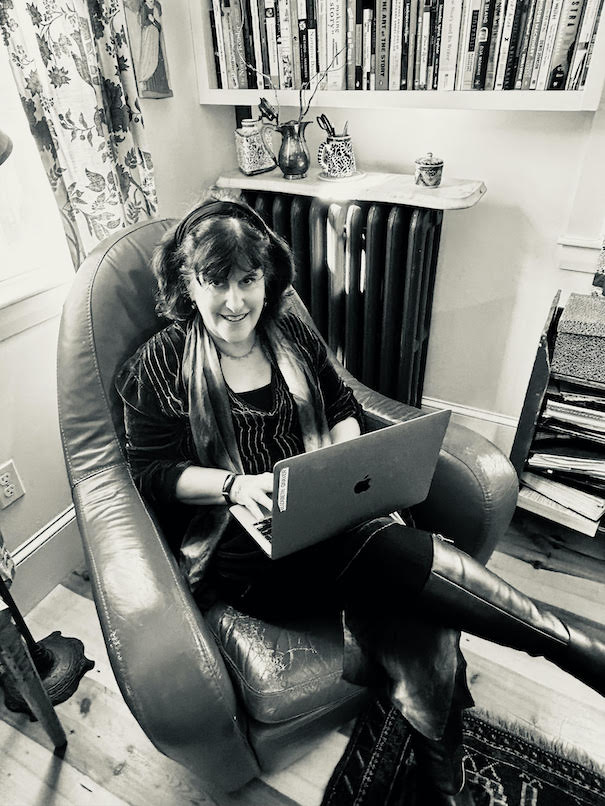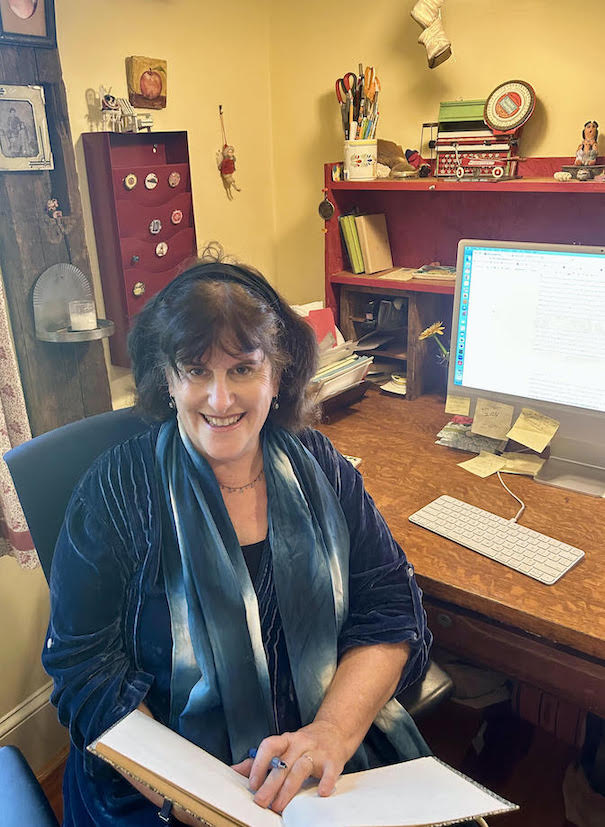
A Conversation About Behind the Scenes of Writing with Elizabeth Graver, Author of Kantika
Voice matters a lot to mecadence and rhythm, the shapes that words take when spoken aloud. I read aloud as I write, and I notice every comma, every end beat, the way the white space works. In this way, I may be closer to a poet than a novelist
Dear Elizabeth Graver, I have been keeping an eye on you since June 7, 2023, when we communicated through social media so that my impressions of you would not be based solely on what you wrote. Since then, I have read your works and followed your social media posts. We both love Virginia Woolf, we both feel the magic of our pen. We know that our words are not lost and remain suspended in the air. “My difficulty is that I write according to a rhythm, not a plot,” says Virginia Woolf. As a writer who writes non-stop to find a thread to throw to the reader, I have always felt that there is a rhythm in my research on your writings and in my communication with you. I didn't rush so that the magic of this rhythm would not be lost and that he would compose his own music by brewing. I feel like now is the right time because the characters in your stories and novels live in my mind. I waited for the right time to keep them alive in my mind and build a soul bridge between us. "One cannot leave the pen alone to write," says Virginia Woolf. "I need to write something about what you have written, and I find this purpose very much worth putting a new nib on my pen." I begin our three-person conversation. You, me and Virginia Woolf.
I feel compelled to ask you this question in connection with Virginia Woolf keeping a diary about the books she has written and the books she hopes to write. Do you also keep a diary during the process of writing your literary works? When you come across places, events, or people that will inspire the scenes in your fiction, do you take notes? Afterwards, when writing your story or novel, do you have a code for constructing them as a writer? I believe you will provide fascinating tips for aspiring writers and anyone who wants to peek behind the shining curtain of writing
When I was younger, I kept big art books with blank pages where I’d write down ideas for stories and quotes from books, and I’d glue in clippings from newspaper articles. I don’t do that anymore, but I use my smartphone in somewhat similar ways. I often get ideas when I’m on walks in the woods. I’ll use a Voice Memo app to record myself, “writing” aloud as I walk. I take a lot of pictures, and when I’m doing “research” on-site for a book (I traveled to Turkey, Spain, and Cuba for Kantika), I try to be as porous and wide open as possible, and I take lots of notes. I often write in the back of books I’m reading. I underline and annotate a lot. When I’m actually writing, I tend not to go back to my notes. What I need will rise to the surface; my memory will sift through it all. Virginia Woolf wrote so beautifully about writing, but that’s not something I do very often. I have a number of roles—professor, mother, writer—and while I love them all, I sometimes struggle to find time to write. Mostly when I’m actually writing, I just try to dive deep into the project itself.
There is a quality to reading your story or novel that makes me wander around my study right in the middle of reading. I wasn't happy to finish any of them. I felt something was missing. From where? I wished I could go back into the plot of your story or novel and live there. How does a good writer do this to his reader? What is it about the writer that makes this magic happen? What should happen? You are also a reader. Can you move away from the author's pen where you feel this?
That’s lovely to hear. My favorite writers manage to make you feel like the lives you are witnessing go on beyond the page and are infinitely complex. Virginia Woolf does this partly through jumping into different consciousnesses so that we get the sense that everyone has a story, even if we can only access a sliver of it. The Canadian short story writer Alice Munro manages, through time and point of view jumping and telling detail, to suggest whole lives in a few short pages. Even her side characters have stories. When I’m writing, I often have the sense that although I’m with my characters for a discrete span of time, their lives will spool on (and their memories circle back) after I leave them. This is, of course, an illusion—they’re invented characters!—but it’s one of fiction’s great gifts. In her story “A Conversation with my Father,” the writer Grace Paley wrote that "everyone, real or invented, deserves the open destiny of life.” Of course, there’s also mortality—another central theme of fiction— but that’s another story.

You are one of those writers who have a strong and hard-to-explain pen charm hidden among your sentences. While creating your stories, do you eliminate unnecessary redundancies at the moment of writing? Or do you sort out the whole after creating it and seeing it?
I do lots and lots of editing, both as I’m writing first drafts and once my projects have reached a close to final shape. I love to tinker with sentences. It’s hard for me to let go at the end.
What you write has its own extraordinary nature. How do you shape a story with a traditional plot in your own imagination? What changes does it undergo? How do you transfer your fingerprints to this story with your pen?
I don’t think of my work as particularly plotted, but my last two novels (Kantika and The End of the Point) have both borrowed their plots, such as they are, from real historical events. I think this freed me up to imagine the lives of the characters living out their days inside those events. Voice matters a lot to me—cadence and rhythm, the shapes that words take when spoken aloud. I read aloud as I write, and I notice every comma, every end beat, the way the white space works. In this way, I may be closer to a poet than a novelist. How the words sound means everything to me, and my voice is in everything I write. Maybe that’s what you mean when you talk about transferring fingerprints from self to page.
Do you feel the boiling of creative power bubbling with pleasant bubbles as you start a new book? Can this power calm down after a while in the later stages of the act of writing? Does the writer continue writing in a more relaxed manner, or do the same bubbles continue bubbling until they run out?
I usually start quite slowly—I find the early stages difficult and toss out a lot of beginnings—and feel more writerly energy once I’m committed to seeing a project through to the end. Maybe because I do a lot of research (which often includes interviews and travel), there are different kinds of pleasure in my writing process. Losing myself in an imagined world is one of them, but so is, for example, wandering up the actual street in Istanbul where my grandmother lived as a little girl. Smelling the smells there, feeling the ground beneath my feet, being there at one moment in time and picturing her also there, decades earlier. The hardest part for me is when I finish a first draft and have to reckon with whether it’s working (usually it’s not). I can feel quite depleted at that moment and unsure of how to proceed. I try to take a break and get opinions from trusted readers. I nap a lot. Eventually, I rally and begin again.

In your recent novel, Kantika, you do a number of things to play with the line between fiction and nonfiction. Is this mix between the real and the imagined specific to Kantika? Will you do something similar in future work?
Kantika is the first book I’ve written that draws directly on my own family history. I considered writing it as nonfiction, but there were too many gaps, and I wanted to be able to imagine inner life in a novelistic way. Fiction felt like the right form, but I also wanted the reader to understand that this story was inspired by real experiences and people. The photos signal the real—even as they are themselves constructed—as does my use of real names and historical events. It’s a hybrid book and troubles the line between genres. I don’t anticipate doing that again in the same way. It just felt like the right form for this project. Every book is different, and I’m always playing around with new approaches.
Your Kantika novel breathes and exhales regularly. When will the Turkish begin to breathe? Who will translate?
The Turkish edition will be out from Everest Editions. I’ve signed the contract but don’t know the details yet about a publication date or translator. I’m really excited that this particular story will reach Turkish readers.
George Eliot never read reviews because what was said about her books prevented her from writing. Do you read reviews? How does reading these reviews affect you?
I do read reviews, though I can see the wisdom in avoiding them. Partly, I’m just an open-the-Pandora’s box type of person and wouldn’t have the restraint to not look. Also, though, sometimes reviews are lovely, a kind of meeting of minds. It can be gratifying to see how your words have landed in the outside world, especially after years of writing alone. A negative review can sting, of course, but I actually find that neither praise nor criticism impacts me for too long. I try to let go of my books when they go out into the world—to wish them well but say goodbye. Ideally, I’m already at work on something new when a book comes out.
Thank you very much for this literary, profound and special interview.
Thank you for all your thoughtful questions!
Related News









